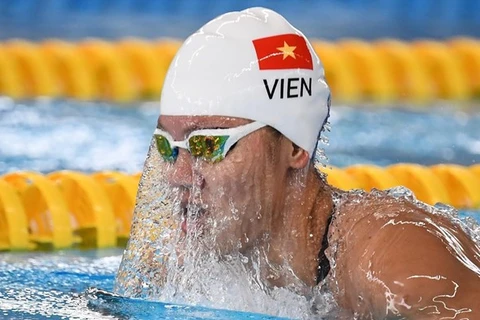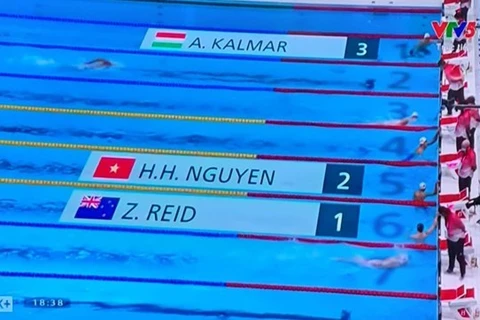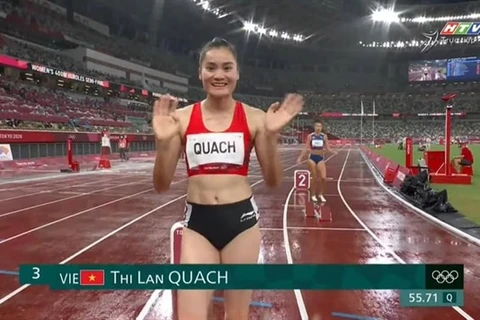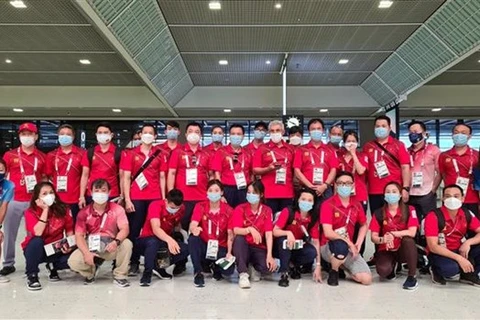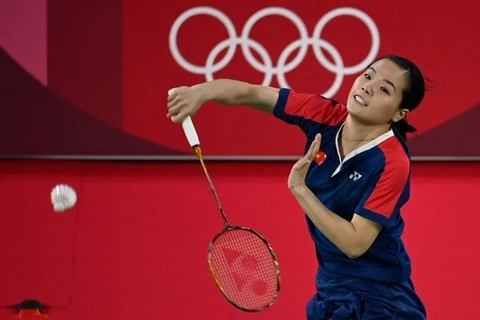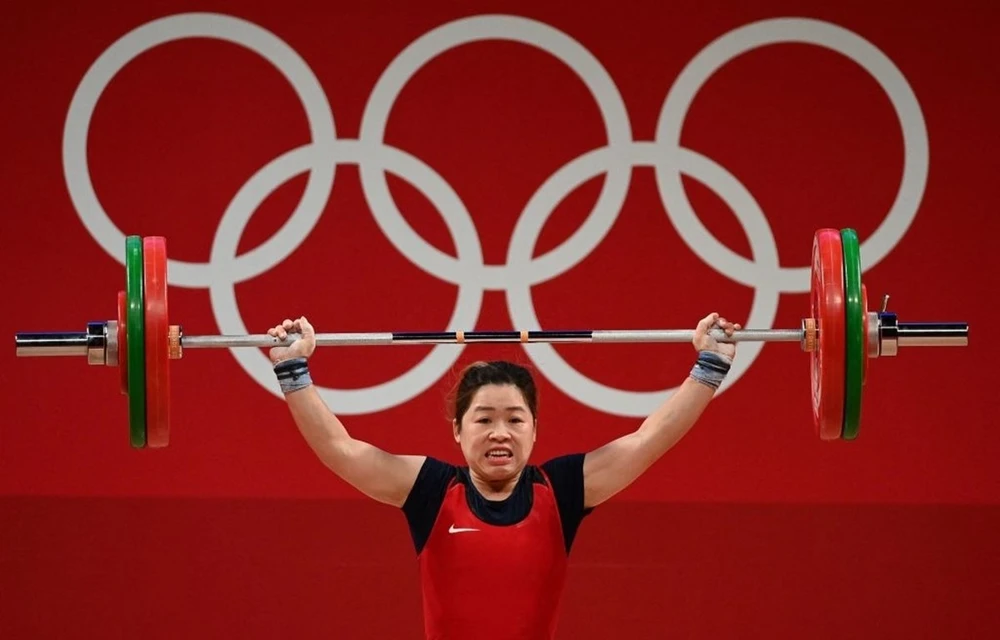
Hanoi (VNA) – That the Vietnamese delegation went home empty-handed at the 2020 Tokyo Olympic Games is not a bad thing, but weaknesses show that Vietnam is struggling and standing behind rivals in the region and continent.
There may be no Olympic Games that Vietnamese athletes were put under pressure as early as this one.
Before runner Quach Thi Lan competed at the final event on August 2, head of the Vietnamese delegation Tran Duc Phan said that as recent results were not satisfying, some press agencies and experts gave their ideas on, analysed and assessed this issue. He expressed his thanks and took note of contributions for the common goal of Vietnamese sport development.
Coming home empty-handed from Olympic Games
As prominent athletes like Hoang Xuan Vinh, Thach Kim Tuan, Hoang Thi Duyen and Nguyen Thi Anh Vien failed to obtain good results, pressure from the public, media and fans became intense. When the delegation wrapped up its journey at the global sporting event without winning a medal, the pressure grew more tremendous.
It was heartbreak when swimmer Nguyen Thi Anh Vien and marksman Hoang Xuan Vinh were eliminated because they were the hope of Vietnamese sports. One person was called by the name “little mermaid” and gained almost all of medals at the Southeast Asian Games (SEA Games), while the other was the gold medalist at the most recent Olympic Games in 2016.
 Hoang Xuan Vinh fails at the men’s 10m air pistol which he won a gold medal at the 2016 Rio Olympic Games (Photo: Getty Images)
Hoang Xuan Vinh fails at the men’s 10m air pistol which he won a gold medal at the 2016 Rio Olympic Games (Photo: Getty Images) The public should sympathise with the athletes and coaches when competing at the global sporting event amid the spread of the COVID-19 pandemic across the world.
Many athletes could not travel abroad to join competitions and training sessions. They also faced a host of obstacles caused by the ongoing pandemic and were not in top form.
Weightlifters Thach Kim Tuan and Hoang Thi Duyen had to stayed nearly 50 days in concentrated quarantine after returning home from training abroad. They neither maintained nutrition and diet, nor had sufficient training gears in such situations.
Likewise, other athletes like swimmers Nguyen Huy Hoang and Nguyen Thi Anh Vien, and taekwondo martial artist Truong Thi Kim Tuyen could not join the optimal training regime as planned.
Therefore, most Vietnamese athletes could not have the best conditions and stamina to gain good results.
 The public need to sympathise with Vietnamese athletes competing at the 2020 Tokyo Games amid the difficulties triggered by COVID-19 (Photo: Getty Images)
The public need to sympathise with Vietnamese athletes competing at the 2020 Tokyo Games amid the difficulties triggered by COVID-19 (Photo: Getty Images) However, drawbacks must be recognised and the pandemic makes them become even more crystal clear.
This year’s Games points out that Vietnam needs to improve and adjust many aspects in a bid to earn the second gold medal ever, or at least to win medals of any colours.
Is the long-term strategy ineffective?
In 2010, the Government approved a strategy on Vietnam’s sport development, in which priority would be given to some specific sports, categories and athletes with high prospects at the continental and global events.
If Vinh’s gold medal was the fruit of the implementation of the strategy, the country should have devised one for the 2020 Tokyo Games at least a decade ago.
However, many veterans represented Vietnam at the Tokyo Games while young athletes are not to be ready for such events.
This indicated that Vietnam’s sport sector has yet to build an efficient strategy, particularly in training for the youths. In addition, the country still has difficulties finding its fortes.
Meanwhile, spending for sports has been on the increase. The figure rose to 857 billion VND (37.6 million USD) from 572 billion VND recorded in 2019.
Two major cities of Hanoi and Ho Chi Minh City posted the largest of amount of 659 billion VND and 503 billion VND last year, respectively.
After the Tokyo Olympics, it is a high time for Vietnam to review its strategy and investment for development./.


